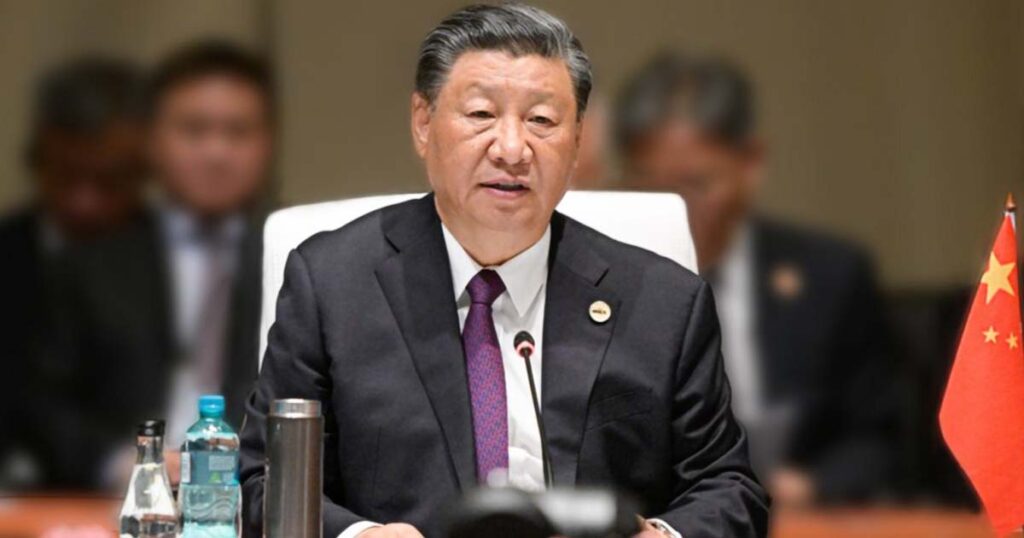Chinese President Xi Jinping’s high-profile diplomatic visit to Brazil has captured global attention as two of the world’s most significant emerging economies seek to strengthen ties. Meeting with Brazilian President Luiz Inácio Lula da Silva, this visit is poised to result in pivotal trade and cooperation agreements that could reshape economic and geopolitical landscapes. Here’s a comprehensive overview of the significance and potential outcomes of this diplomatic endeavor.

The Context: Why This Visit Matters
China and Brazil are two powerhouses in the Global South, united by shared goals of development and mutual growth. Both countries are key members of BRICS (Brazil, Russia, India, China, South Africa), an economic bloc aimed at challenging the traditional dominance of Western powers in global governance. This visit underscores their deepening partnership, which has evolved from a trade relationship into a broader strategic alliance.
Key areas of focus for this meeting include:
- Trade Expansion: Strengthening Brazil’s role as a vital exporter to China.
- Sustainability: Collaborating on green technology and climate initiatives.
- Technology: Encouraging technological and digital partnerships.
- Geopolitics: Fostering South-South cooperation to enhance global influence.
Key Developments Expected from the Visit
1. Trade and Economic Agreements
China has been Brazil’s largest trading partner for over a decade, with bilateral trade exceeding $150 billion in 2023. Key Brazilian exports, such as soybeans, iron ore, and beef, form the backbone of this relationship.
During this visit, both nations are expected to announce measures to:
- Expand agricultural trade, enabling Brazil to diversify its export portfolio.
- Increase Chinese investments in Brazil’s infrastructure, including ports and railways, to enhance logistics.
- Boost trade in high-value sectors like renewable energy and technology.
2. Collaboration on Sustainability and Green Energy
China and Brazil share significant stakes in the global climate agenda. Brazil’s Amazon rainforest and China’s renewable energy expertise make them natural allies in combating climate change. Anticipated outcomes include:
- Joint projects to combat deforestation in the Amazon.
- Investment in green hydrogen and solar energy projects in Brazil.
- Knowledge-sharing on sustainable farming practices.
3. Technology and Innovation Partnerships
Technology remains a growing area of interest. China, a leader in 5G and artificial intelligence, seeks to deepen collaboration with Brazil in:
- Building Brazil’s digital infrastructure.
- Partnering in AI research and development.
- Expanding e-commerce platforms, boosting access for small Brazilian businesses to Chinese markets.
4. A Strengthened Geopolitical Alliance
This visit is also symbolic of a broader geopolitical realignment. With Brazil seeking to assert its autonomy in foreign policy under President Lula, the two countries share a vision of a multipolar world where no single nation dominates.
- China supports Brazil’s bid for a permanent seat on the UN Security Council.
- Both countries advocate for reform in global financial institutions, pushing for alternatives to dollar-dominated trade.
What This Means for the World
- For Latin America: Brazil’s strengthened ties with China could inspire other nations in the region to deepen their economic relations with Beijing, shifting the balance of power in the Western Hemisphere.
- For the U.S. and Europe: The growing partnership underscores the waning influence of traditional Western powers in the Global South.
- For Global Trade: These agreements could drive greater South-South cooperation, enhancing the voice of developing nations in global governance.
Challenges Ahead
Despite the optimism, this partnership isn’t without challenges:
- Economic Dependency: Brazil must ensure that deepening trade ties with China doesn’t lead to over-reliance on a single market.
- Environmental Concerns: Both countries face scrutiny over their environmental records, particularly regarding deforestation and carbon emissions.
- Geopolitical Tensions: Closer Brazil-China ties might strain Brazil’s relationships with the U.S. and EU, key allies in trade and diplomacy.
Conclusion: A Strategic Partnership for a Changing World
Xi Jinping’s visit to Brazil marks a significant milestone in the evolving China-Brazil relationship. The agreements signed during this visit could lay the foundation for a new era of mutual growth, technological innovation, and sustainability.
For Brazil, this partnership offers an opportunity to strengthen its economy, modernize infrastructure, and bolster its global standing. For China, deepening ties with Latin America’s largest economy reinforces its vision of a multipolar world.
As the world watches, the success of this visit will depend not just on the deals struck but on their long-term implementation and mutual benefits. One thing is clear: the China-Brazil alliance is not just a bilateral partnership—it’s a statement of how the Global South is reshaping the 21st century.






